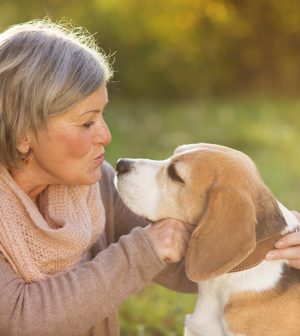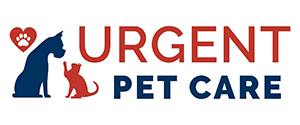- Do you subscribe to Dharma Dog Training’s Newsletter? You should.
- A Unique Campaign from The Humane Society of the United States
- Rabid bats in Omaha- Stay safe, prepared with these tips
- Springtime Activities in Omaha
- Mill Dog Monthly from Bailing Out Benji
- World Spay Day, Legislative Alert in Nebraska
- Attend the Nebraska Rescue Council’s monthly meeting this Saturday
- Five Hard-to-Ignore Reasons to Adopt!
- Paws in Pink to Benefit Breast Cancer Foundation
- VCA, Inc. Acquires MidWest Vet Specialists from Kansas State University
How To Improve The Life Of Your Senior Pet

Do you have an elderly fur baby and want to improve their life by making them more comfortable in their golden years? Older pets require a contrasting level of care compared to younger animals.
Senior dogs and cats deserve to live their best lives possible. Pay attention to whether your older pet is in pain. Cats and dogs often demonstrate their pain differently. A cat in pain may be hesitant to jump, and a dog experiencing discomfort may limp when they walk. Older pets may not climb the stairs easily.
You may notice behavioral changes in your pet that can signify your furry friend is aging and must adjust their routine accordingly. In this article, you will learn how to make necessary changes and improve the life of your senior pet.
How To Care For Senior Pet
Senior pets may require more attention than younger pets. Start by modifying their diet to make sure it is age-appropriate. Adapt their physical activity to suit their limitations but make it fun and challenging enough to keep them interested.
Senior Pet Food
Switching your older pet to a senior-specific dog or cat food is the first step in making certain they are eating food that is formulated to match their nutritional needs. Be mindful of their individual challenges. Some tips for feeding senior pets:
- Soften food with warm water if they struggle with hard foods due to age-related dental issues.
- Use raised water and food bowls if your pet suffers from arthritis or pain
- Smaller, more frequent meals stoke their metabolism, prevent weight gain, aid digestion, and boost energy
- Diet rich in high-quality protein like salmon, lamb, beef, or chicken with essential amino acids
- Omega -3- fatty acids help aging pets with arthritis, support joint health, and reduce inflammation
- Hydration is key to encourage healthy kidney function, regulate body temperature, and prevent constipation
Consider choosing fresh foods for your dog or cat. The Farmer’s Dog and Fresh Pet are specialized diets that contain fresh meats and vegetables and are said to be designed to increase longevity and promote optimal health. Talk to your vet about your furry friend’s nutrition before implementing a diet for your senior pet.
Physical Activity
To exercise your senior dog and help them to continue to enjoy physical activity as they age, consider gentle, low-impact exercises to limit stress on the joints. Make adjustments for arthritic dogs who may thrive with modified play.
For your furry feline, shorten the play session and play with a cat wand at ground level to accommodate for potentially limited mobility and smaller jumps. Always satisfy your cat’s inner hunter, no matter their age.
Best play for older dogs:
- Swimming
- Shorter walks
- Dog yoga or senior stretches
- Fetch with soft toys at shorter distances
Best play for older cats:
- Gentle walking outside on leash and harness
- Cat tower specifically designed for senior pets
- Lightweight cat wand to exercise predatory instincts
- Food puzzles promote slower eating and provide mental stimulation
Help Pets With Arthritis Or Mobility Issues
Watch your older pet for signs of pain. A senior dog in pain may have difficulty standing up or lying down. They may limp or whimper. Swelling and inflammation may also be a factor. A cat may exhibit signs of pain if they no longer jump onto the couch or bed. Walking upstairs may be problematic. The signs may be subtler in cats as they tend to hide their hurt.
Cats in pain may also have a decrease in appetite, sleep excessively, and show little or no interest in activity. For dogs and cats with conditions like arthritis or mobility issues, consider alternative therapies:
- Acupuncture
- Physical therapy
- Hydrotherapy
- Laser therapy
- Pet chiropractor
If you think your pet may benefit from a chiropractor, make sure you find someone with experience and adequate training. Behavioral changes may also be present in pets with pain. Much like humans, your canine or feline companion may act cranky or aloof when experiencing pain.
Since elderly pets tend to have age-related conditions, a cozy, supportive orthopedic bed may be ideal for your furry friend. These beds are specially made to reduce pressure on muscles and joints. There are also heated pet beds for those fur babies who prefer the toasty warmth of a safe space.
Assist With Grooming
Aging pets may need help with grooming as some older pets may have trouble with self-cleaning. When your fur baby becomes elderly, changes in their hair coat, nails, skin, and overall health can necessitate extra attention.
When your pet enters their golden years, their skin may be more sensitive. A grooming glove is a valuable tool to gently eliminate mats and knots and de-shed with ease while giving your pet the ultimate relaxing massage.
More Frequent Vet Visits
Older cats and dogs are more susceptible to age-related conditions and illnesses, which is why it is imperative that they visit the vet every six months or more if you notice any changes that may concern you. Senior pet exams are more detailed as detecting health issues in your aging fur babies early gives your pets the best chance for a positive outcome.
Conclusion
Senior pets deserve to be made as comfortable as possible. It is essential to provide them with age-appropriate food that contains all the proper nutrients. Adapt physical activity to meet their individual needs and be mindful of those furry friends with pain. Above all else, treat your elderly love bug with kindness, care, and affection.
Latest News
-
3 Tips for Pet Owners on Training Rescue Dogs
Owning a rescue dog can take some work compared to...
- Posted 3 weeks ago
- 0
-
10 Tips To Remember When Bringing Your Rescue Dog Home
Bringing your new rescue dog home for the first time...
- Posted 4 weeks ago
- 0
-
Choosing the Right Pet for Your Lifestyle
Are you thinking about getting a pet but unsure what...
- Posted 1 month ago
- 0
-
How to Make Your Rescue Pet as Comfortable as Possible
Did you bring home a new pet from a shelter...
- Posted 2 months ago
- 0
-
How Having A Pet Can Change Your Life
Having a pet can open your heart in ways that...
- Posted 7 months ago
- 0
-
How To Improve The Life Of Your Senior Pet
Do you have an elderly fur baby and want to...
- Posted 8 months ago
- 0
-
Springtime Activities To Enjoy With Your Furry Friends
Are you preparing for warmer weather and want some ideas...
- Posted 9 months ago
- 0


















You must be logged in to post a comment Login